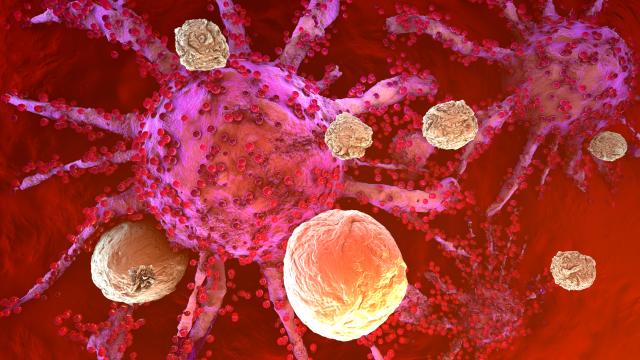Sri Krishna, Ph.D.
- Center for Cancer Research
- National Cancer Institute
- Building 10, Room 3-5818
- Bethesda, MD 20892
- 240-858-3766
- sri.krishna@nih.gov
RESEARCH SUMMARY
Dr. Krishna has a broad background in human immunology with expertise in developing cellular immunotherapies against metastatic solid tumors. His research is focused on discovering and studying antitumor T cells including those targeting neoantigens, antitumor T cell receptors, human T cell differentiation states, and immune resistance by human tumors.
Areas of Expertise
Sri Krishna, Ph.D.
Research
Metastatic solid tumors remain the leading cause of cancer deaths worldwide. Cancer immunotherapies have provided the promise of long durable regressions for some types of solid tumors. However, many metastatic solid epithelial tumors, including colon, rectal, breast, and pancreatic cancers, do not respond well to immunotherapies.
Central to the success of cancer immunotherapies including T cell-based therapies (such as ACT) lie in the 1) accurate identification of antitumor T cells, 2) overcoming profound T cell dysfunction within tumors, and 3) overcoming resistance mechanisms employed by tumors to evolve immune response. At the Surgery Branch, we have ongoing clinical protocols that evaluate the efficacy of ACT including those targeting patient tumor-specific mutations (neoantigens), which we utilize for our basic research efforts.
We aim to discover basic immune principles using systems analysis of human immune cells and patient-derived tumor models to clarify the underlying biology. Listed below are some of the broad research areas and questions within my group that address these three challenges in immunotherapy:
- Immune phenotypes targeting tumor genotypes – We are interested in studying the phenotypic states of antitumor T cells, especially those targeting tumor neoantigens in humans. These investigations include basic research studies to identify the various states that antitumor T cells can attain across space and time within a human. We believe these high-dimensional studies could unveil basic T cell immunology in the context of human tumors, and lead to the identification of neoantigen-specific T cell subsets that can be utilized for ACT.
- Understanding the limits of human T-cell dysfunction – We are interested in studying neoantigen-specific T-cell dysfunction using human patient-derived samples through the lens of genetic, epigenetic, and immune manipulation. We believe these investigations will uncover fundamental principles in T-cell differentiation lineages and lead to strategies that could be engineered for next-generation cell therapies.
- Finding and engineering the right antitumor T cell – While some human neoantigens occur within tumor hotspot mutations, most neoantigens seem to be private with unknown function. We seek to understand why that is, and what are the properties of an ideal antitumor target. We are also interested in identifying antitumor T cell receptors (for TCR therapy) against tumor drivers that are shared across patients (including against viral antigens). These studies will decipher and identify the rules that make a good antitumor target antigen in human tumors, and lead to the discovery of shared antitumor TCRs for engineered immunotherapies
Keywords: Cancer Immunology and Immunotherapy, T cell dysfunction, Adoptive Cell therapy, Cancer Vaccines, Neoantigens, TCR therapy, Gene therapy
Publications
TCR contact residue hydrophobicity is a hallmark of immunogenic CD8+ T cell epitopes
Biography
Sri Krishna, Ph.D.
Dr. Krishna obtained his biotechnology training from Kamaraj College, Anna University, India, and a master's degree in biotechnology from Pennsylvania State University. He subsequently completed his Ph.D. in biological design with a focus on immunology from Arizona State University. In 2018, he joined the Surgery Branch as a post-doctoral research fellow. In July 2023, he became a Stadtman Tenure-Track Investigator in the Surgery Branch.
Job Vacancies
We have no open positions in our group at this time, please check back later.
To see all available positions at CCR, take a look at our Careers page. You can also subscribe to receive CCR's latest job and training opportunities in your inbox.




